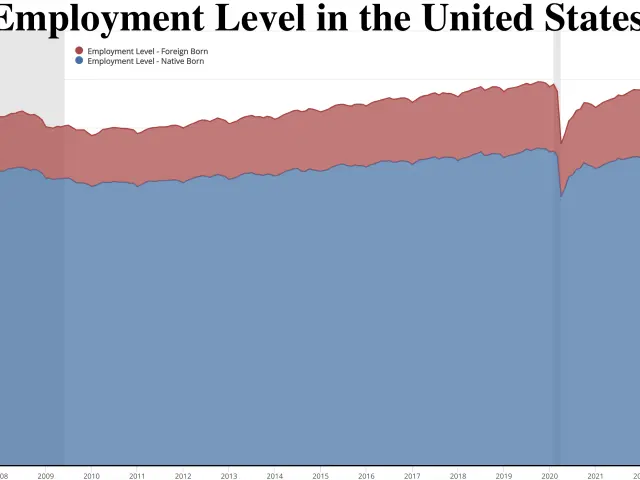Educators in Berlin Facing Rising Risk of Exhaustion
Teaching Beyond the Classroom: An Overworked Profession in Berlin
Many people outside the education system may imagine teachers lazing through the same lessons day in and day out, finished by midday and basking in months of vacation. Yet, as Caroline Muñoz del Rio, a high school teacher in Wedding, shares, "My son often asks me, 'Mom, why are you always working?'" Apparently, the reality is quite different.
A study by the University of Göttingen, soon to be unveiled at the GEW (Education and Science Union) headquarters, reveals a startling truth: two-thirds of teachers in Berlin are overworked. On average, they put in an extra 2.5 hours a week, totaling 94 additional hours each year. Considering only school weeks, full-time teachers work an average of 46.4 hours, with 30% clocking over 48 hours. These numbers were derived from an app-based record of the working hours of 1200 teachers from 415 schools representing 54% of all schools in Berlin.
Teaching, surprisingly, only accounts for a third of a teacher's working time. Another third is dedicated to lesson preparation, follow-ups, and marking assignments. Remaining activities include parent-teacher conferences, meetings, and administrative chores, taking up the final third.
"Overwork is just the tip of the iceberg," Thomas Hardwig, a researcher at the University of Göttingen and co-author of the study, explains. Long hours can lead to burnout, with only 20 to 30% of teachers within healthy psychological parameters, according to Hardwig.
The workload is attributed not to increased teaching hours, but rather the addition of extracurricular activities. "The pedagogical core is taking up less and less space," study author Frank Mußmann comments. Moreover, the growing number of students with unique challenges, such as autism or trauma, also contributes to the increased workload.
The Berlin Senate appears indifferent to the health concerns, as Martina Regulin, the head of the GEW union in the state, points out. Regulin demands the Senate introduce a uniform working time recording system for the education sector. This has been a legal requirement since the European Court of Justice's ruling in 2019. Legally enforced work-time recording could be the first step towards relieving the relentless pressures on teachers.
If more teachers were hired, as study author Thomas Hardwig suggests, an additional 1300 full-time teachers would be needed to compensate for the existing overtime. Other professions such as IT, administration, or social work would also need to be bolstered to lighten the teachers' load. Recalculating the working hours of teachers altogether could prevent the tendency towards overtime and facilitate targeted relief measures. A restructured system would make the teaching environment more sustainable, promoting mental health and resilience amongst educators.
- Encouraging mental health and resilience among educators, a restructured teaching system could potentially be more sustainable if it recalculates working hours, preventing the tendency towards overtime and facilitating targeted relief measures.
- In addition to the teaching profession, other fields such as IT, administration, or social work would need to be bolstered to lighten the teachers' load, thus contributing to their overall well-being and personal growth.
- Furthermore, the growing number of students with unique challenges, such as autism or trauma, places additional demands on teachers, exacerbating the issue of overwork and mental health concerns in the education and health-and-wellness sectors.







